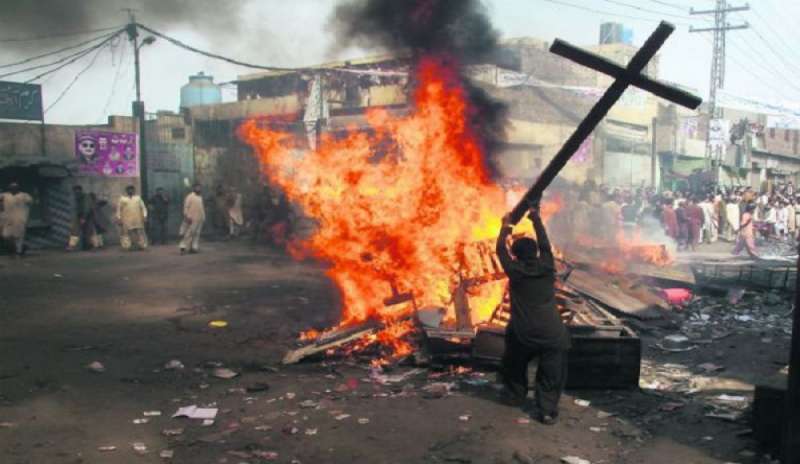
Asia Bibi looks out from her small sized cell of a few metres, where she is doomed to live her last days before the block. Perhaps she could be thinking about how lucky her peers are, to be born in places where religious freedom is enjoyed as a civil right. A few angry words pronounced during a dispute with two Muslim women, had cost her a death sentence for blasphemy. An infamous and disgraceful norm, which approves torture and the killing of tens of thousands of people in Pakistan (where Asia conducts her life) and in other confessional countries. For this reason, in support of Bibi and against the application of this atrocious law, the West has mobilised transforming it into a symbol against the persecution of Christians throughout the world. A gruesome story, which for too long has been underestimated by the international community.
To awaken her from her deep slumber came the outburst of plea from the Pope. “We cannot give in to the thought of a Middle East without Christians – said Pope Francis
opening the Ordinary Consistory dedicated to the hottest spot of the planet- which for two thousand years has been confessing the name of Jesus “. The playground of wars and oppression where “unfortunately -added the Pope – violence takes place in face of the indifference of many “. Yet, and this is what brings to anger, the signs were all there. The most awesome came last August from Mosul (in Iraq), where the homes of Nassarah (i.e. Nazarenes, term with which Muslims call whoever believes in Christ) were marked with spray cans. As well as the Nazis marking the shops and homes of the Jews in the 30s and 40s, before the nightmare of extermination reveals all its drama. This scenario, with the unbridled rise of Isis and fundamentalism, could occur again.
In 2011, the daily newspaper ‘Avvenire’ had published the first data on the persecution of Christians. According to the files, 75% of anti religious violence in the world affected this religion, which in the Middle East has even risked growing extinct. The number of casualties (from 2000 and 2010) accounted for 150,000 per year i.e. one every 5 minutes. According to OECD estimates, total count of Christian martyrs stands at 70 million, of which 45 million only in the twentieth century. This makes Christianity the most attacked religious belief in the world. A situation that has turned so severe, that even the European Parliament has felt compelled to intervene, by promoting the adoption of a common strategy to curb the phenomenon.
Yet over the past three years, matters have taken a turn for the worst. One need only think of what is happening in Nigeria, where, militias belonging to fundamentalist group Boko Haram, have burned down 185 churches over just two months, forcing over 190 thousand people to flee. Or the kidnapping of a priest and 20 followers (who were later released), in Syria in the first week of October. And he who is of the conviction that this responsability for the continual unpunished carnage be limited only to Islamic Fundamentalism, is wrong. The persecution goes on even in countries far away in culture and traditions from the Muslim world. As in India for example, where the forced reconversion to Hinduism is continuing: three hundred and fifty in 2011,three hundred and fifteen in 2012 and twenty-three in the past days.
Not to mention the conditions in which Christians are obliged to live in, in Communist countries in Asia. In China, only patriotic organizations headed by bishops chosen by the party are recognised- The Church loyal to the Pope instead is illegal and several bishops have been imprisoned. While in North Korea, exiles speak of hundreds of thousands of massacres, where whole regions inhabited at one time by Christians, have been depopulated. Stories of pain, of intolerance and of death that are a powerful slap on the face to those who for too long, have kept their silence on the issue, perhaps in the belief that a Christian is obliged, by vocation, to turning the other cheek. Naturally as long as he still has one.
Translation provided by Marina Stronati









